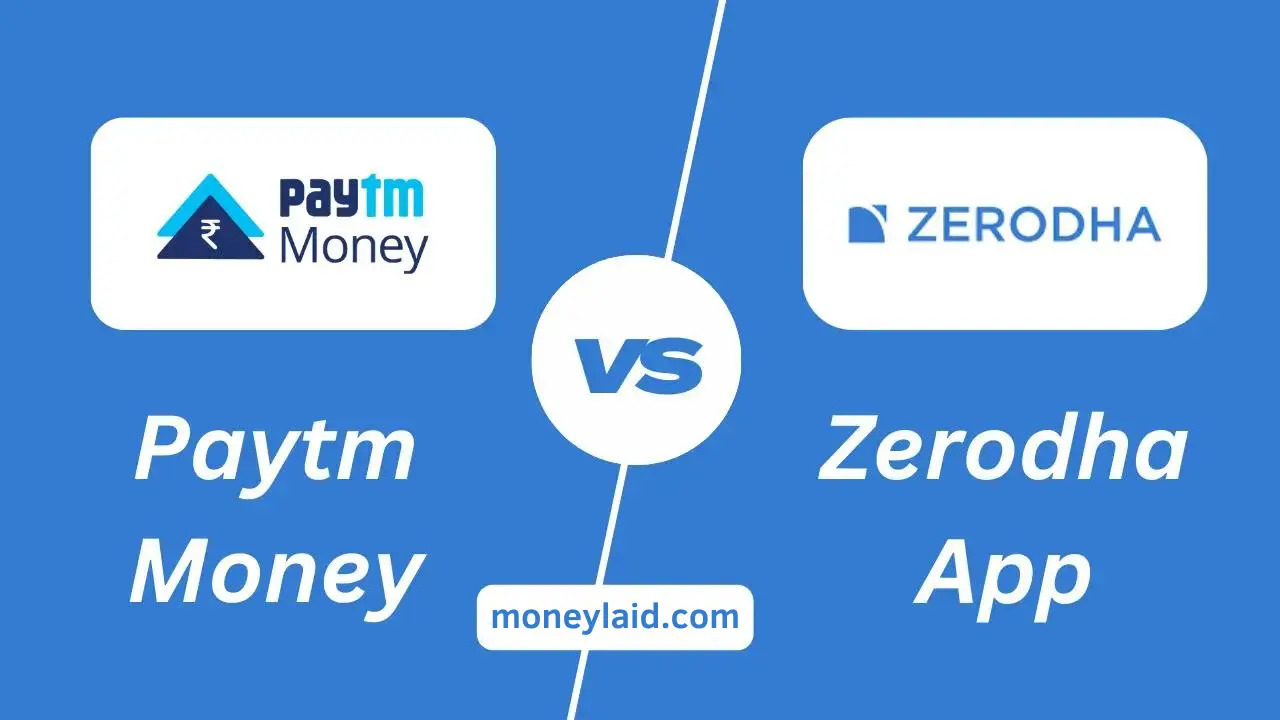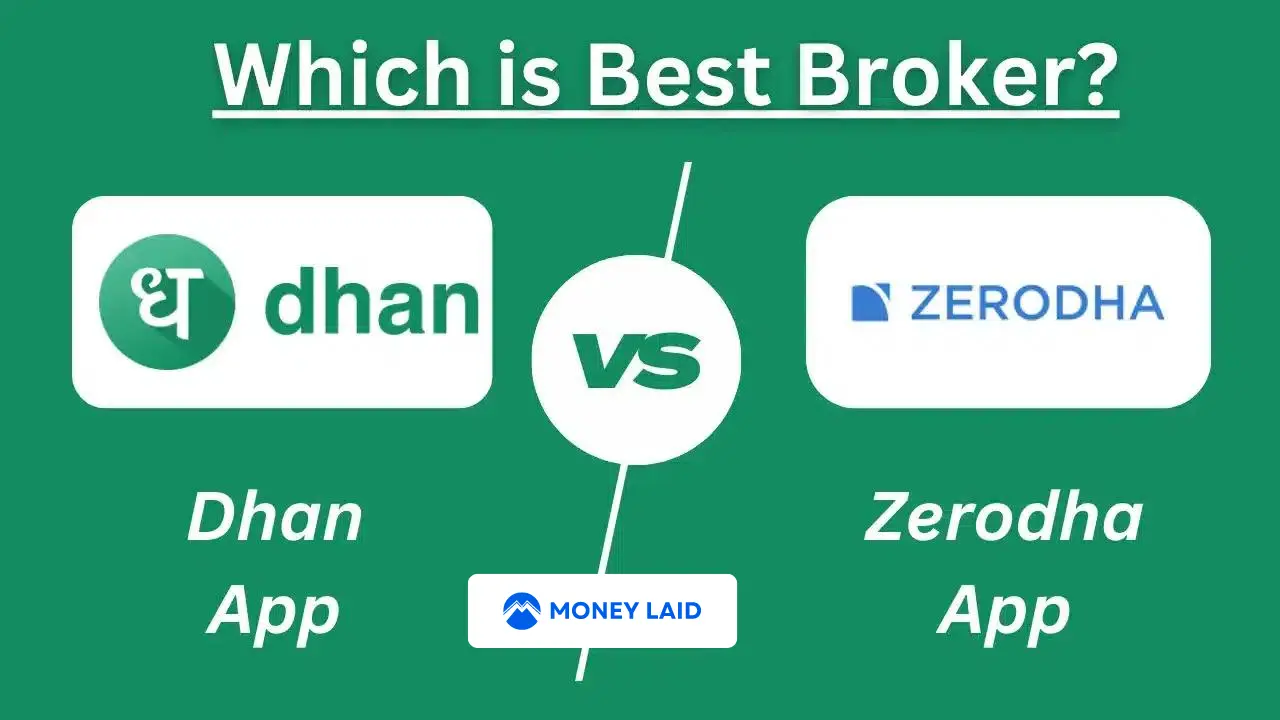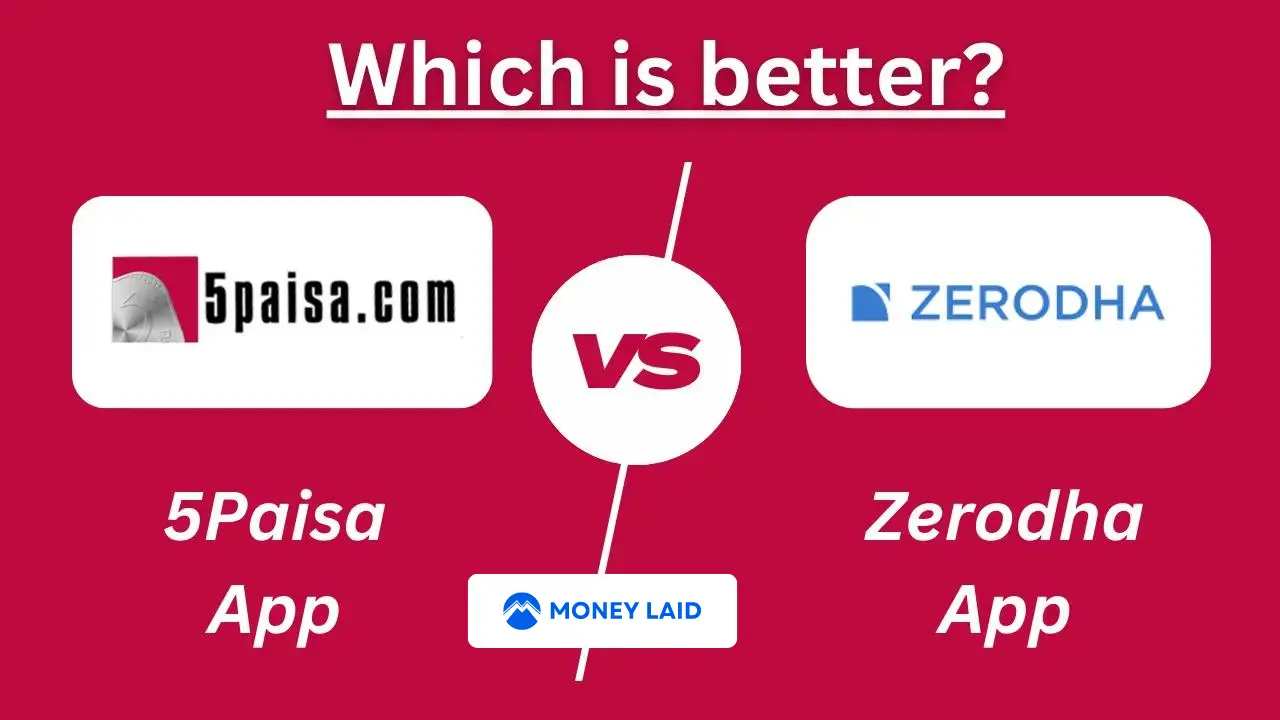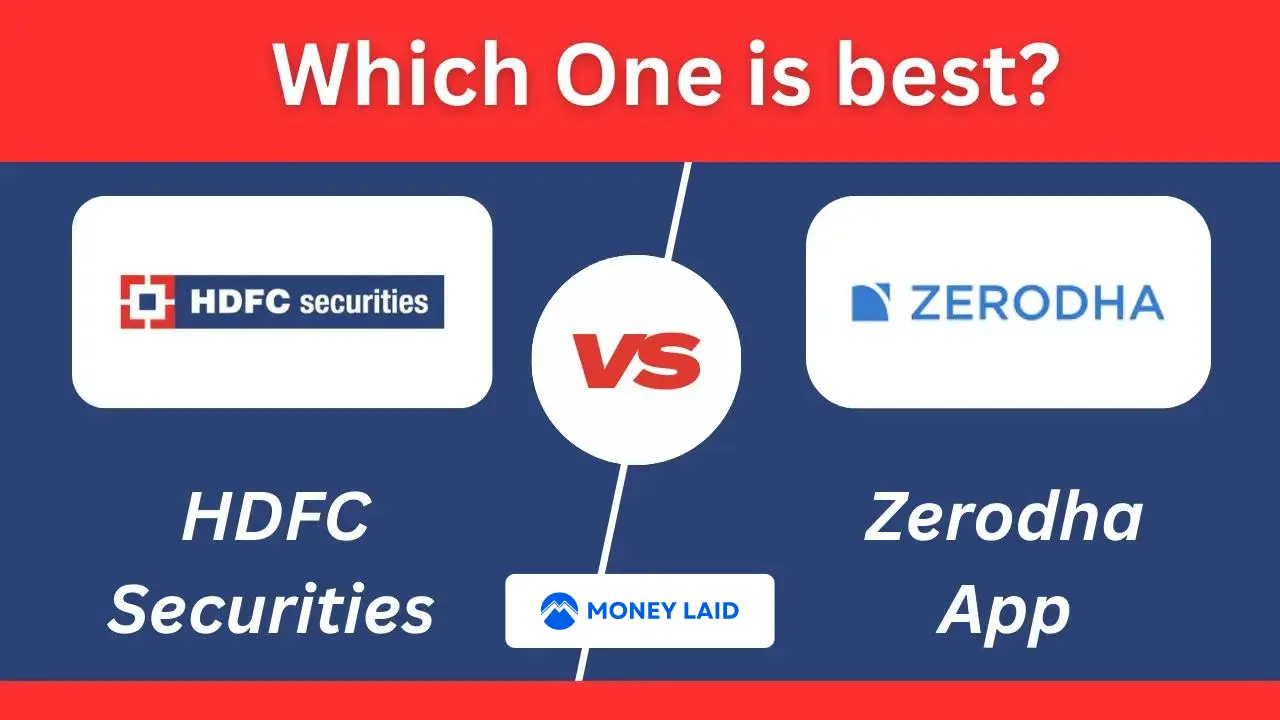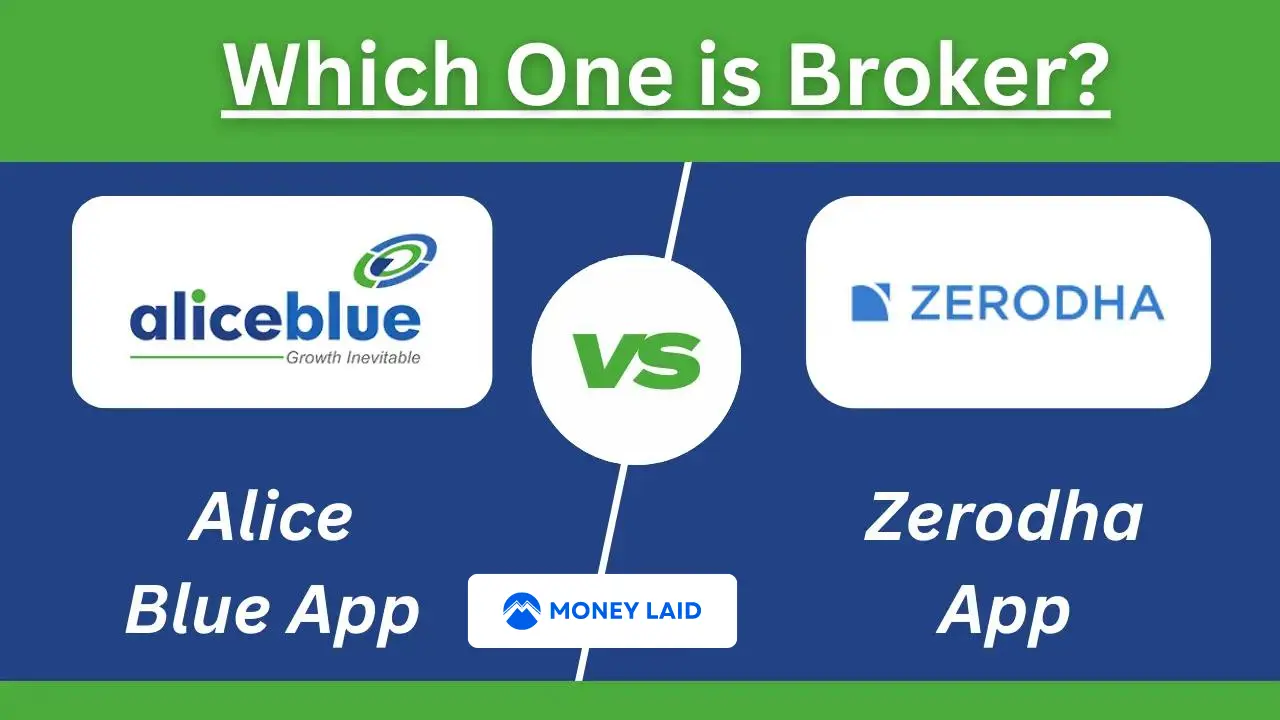Zerodha vs Paytm Money: Zerodha and Paytm Money are the two biggest stockbrokers in India. Both offer a variety of features and benefits, but which one is right for you?
In this blog post, we will compare Zerodha and Paytm Money on a variety of factors, including brokerage fees, trading platforms, customer service, and more.
Read on to find out which stockbroker is the best fit for your needs.
Zerodha vs Paytm Money: About
Zerodha
Zerodha is India’s largest stockbroker offering online flat fee discount brokerage services.
It charges no brokerage for equity delivery trades and direct mutual funds, and a flat Rs. 20 or 0.03% (whichever is lower) per trade for intraday and futures trades.
For options trades, it charges a flat Rs. 20 per order……read continue
Paytm Money
Paytm Money is a discount stockbroker in India founded in 2017 by One97 Communications, the parent company of Paytm, India’s largest digital goods and mobile platform.
Paytm Money is a SEBI-registered stockbroker, investment advisor, and depository participant with CDSL……read continue
Zerodha vs Paytm Money: Overview
| Details | Paytm Money | Zerodha |
|---|---|---|
| Broker Type | Discount Broker | Discount Broker |
| Exchange Membership | BSE, NSE, SEBI | NSE, BSE, MCX, NCDEX |
| Founder In | 2017 | 2010 |
| Head Office | Noida, India | Bengaluru, India, at 153/154, 4th Cross, J.P Nagar 4th Phase, Opp. Clarence Public School, Bengaluru – 560078. |
| No. of Branches | 900+ | 75+ |
| Founder | Vijay Shekhar Sharma | Nithin Kamath and Nikhil Kamath |
| CEO | Varun Sridhar | Nithin Kamath |
| Market Cap | ₹1,115 crore (FY22) | $2 billion |
| Downloads on Playstore | 10M+ | 10M+ |
| Rating on Playstore | ⭐ 3.5 Out of ⭐ 5.0 (Based on 180K Votes) | ⭐ 4.0 Out of ⭐ 5.0 (Based on 326K Votes) |
| Users | 10 million+ | 15 million+ (9.5 Active users) |
| Website | www.paytmmoney.com | zerodha.com |
Zerodha vs Paytm Money: Features
| Feature | Zerodha | Paytm Money |
|---|---|---|
| Trading platforms | Kite Web, Kite Mobile, Coin | Paytm Money mobile app, Paytm Money website trading software |
| 3-in-1 account | No | No |
| Charting | Yes | Yes |
| Automated trading | Yes | No |
| SMS alerts | No | No |
| Online demo | Yes | Yes |
| Online portfolio | No | Yes |
| Margin trading | Yes | Yes |
| Funding | No | No |
| Margin against shares (equity cash) | Yes | No |
| Margin against shares (equity F&O) | Yes | No |
| Intraday square-off time | 3:15 PM (EQ cash), 3:25 PM (EQ F&O), 4:45 PM (currency), 25 min before close (commodities) | 3:15 PM |
| Trading in SME shares allowed? | Yes | – |
| Referral program? | Yes | – |
| Other features | Direct mutual funds, APIs for algo trading | – |
Zerodha vs Paytm Money: Charges
Account Opening and Maintenance Charges: Zerodha vs Paytm Money
| Feature | Zerodha | Paytm Money |
|---|---|---|
| Trading account opening charges | Rs 200 | Rs 200 |
| Trading account AMC charges | Rs 0 (free) | Rs 300 (annual platform fees) |
| Demat account opening charges | Rs 0 (free) | Rs 0 (free) |
| Demat account AMC charges | Rs 300 | Rs 0 (free) |
Both Zerodha and Paytm Money have the same trading account opening charges and demat account opening charges. However, Zerodha has no annual maintenance charges (AMC) for trading accounts, while Paytm Money charges Rs. 300 per year.
Brokerage Charges: Zerodha vs Paytm Money
| Account type | Zerodha | Paytm Money |
|---|---|---|
| Equity delivery | Free | Rs 20 per executed order or 2.5%, whichever is lower |
| Equity intraday | Rs 20 per executed order or 0.03%, whichever is lower | Rs 20 per executed order or 0.05%, whichever is lower |
| Equity futures | Rs 20 per executed order or 0.03%, whichever is lower | Rs 20 per executed order or 0.01%, whichever is lower |
| Equity options | Rs 20 per executed order | Rs 20 per executed order |
| Currency futures | Rs 20 per executed order or 0.03%, whichever is lower | N/A |
| Currency options | Rs 20 per executed order | N/A |
| Commodity futures | Rs 20 per executed order or 0.03%, whichever is lower | N/A |
| Commodity options | Rs 20 per executed order | N/A |
Zerodha offers free brokerage for equity delivery trades, while Paytm Money charges Rs 20 per executed order or 2.5%, whichever is lower. Zerodha also has lower brokerage rates for equity intraday and futures trades than Paytm Money.
Other brokerage charges: Zerodha vs Paytm Money
| Feature | Zerodha | Paytm Money |
|---|---|---|
| Minimum brokerage | 0.03% in intraday and F&O | Rs 20 per executed order |
| Other charges | Physical contact notes: Rs 20, Trade SMS alerts: Rs 1 per SMS, Platform usage fees: Rs 30 per month, Physical statements/documents: Rs 300 per request + Rs 300 per courier | None |
| Call and trade charges | Rs 50 per executed order | Rs 100 |
Transaction Charges: Zerodha vs Paytm Money
| Feature | Zerodha | Paytm Money |
|---|---|---|
| Equity delivery | NSE Rs 325 per Cr (0.00325%) | BSE Rs 375 per Cr (0.00375%) (each side) |
| Equity intraday | NSE Rs 325 per Cr (0.00325%) | BSE Rs 375 per Cr (0.00375%) (sell side) |
| Equity futures | NSE Rs 190 per Cr (0.0019%) | Rs 200 per Cr (0.002%) |
| Equity options | NSE Rs 6250 per Cr (0.0625%) (on premium) | Rs 5,300 per Cr (0.053%) on premium |
| Currency futures | NSE Rs 90 per Cr (0.0009%) | BSE Rs 25 per Cr (0.00025%) |
| Currency options | NSE Rs 3500 per Cr (0.035%) | BSE Rs 100 per Cr (0.001%) (on premium) |
| Commodity group A | Rs 260 per Cr (0.0026%) | N/A |
Zerodha has lower transaction charges for equity delivery, equity intraday, equity futures, and equity options than Paytm Money. Paytm Money has lower transaction charges for currency futures than Zerodha.
Zerodha vs Paytm Money: Leverage (Margin)
| Segment | Zerodha | Paytm Money |
|---|---|---|
| Equity delivery | 1x | 1x |
| Equity intraday | Up to 5x | Up to 5x |
| F&O (Eq, Curr, Comm) | 1x | 1x |
Both Zerodha and Paytm Money offer the same leverage for equity delivery, equity intraday, and F&O trading.
Zerodha vs Paytm Money: Demat Account Comparison
| Feature | Zerodha | Paytm Money |
|---|---|---|
| Demat Account Opening Fee | ₹50 (Stamp charges payable upfront) | Nil |
| Demat Account AMC | ₹300 + GST (Individuals/Non Individual (except Corporate)) | Free – Zero maintenance charges |
| Advance Deposit | ₹0 | Nil |
| Dematerialisation Charges | ₹150 per certificate + ₹100 Courier charges | Rs 250 per 100 shares + depository charges |
| Rematerialisation Charges | ₹150 per certificate + CDSL charges + ₹100 Courier charges | Rs 250 per 100 shares + depository charges |
| Transaction Charges (Credit or Buy) | Market Trades: ₹13.5 + GST | Rs 10 per ISIN |
| Transaction Charges (Debit or Sell) | Off-Market Trades: 0.03% of ₹25 whichever is higher + GST | |
| Pledge Creation Charges | ₹30 per request + GST | Rs 10 per ISIN |
| Pledge Creation Confirmation Charges | ₹0 | |
| Pledge Invocation Charges | ₹20 | Rs 10 per ISIN |
| Failed Instruction Charges | ₹50 per ISIN | |
| Other Charges | Cheque Bounce: ₹350 | |
| Physical Statement – ₹50 (+Courier charges at actual) | ||
| Modification in CML – ₹25 per request | ||
| KRA Upload / Download – ₹50 per request | ||
| Interest at 18% p.a is charged on the outstanding bill amount if not paid within the due date. | ||
| Off-market transfers – Rs 10 per IS |
Zerodha vs Paytm Money: Investments Options and Others
Investment Options
- Zerodha: Stocks, equity, commodities, currency, IPO, mutual funds, bonds/NCD, debt, NPS retirement fund, digital fund
- Paytm Money: Stocks, equity, commodities, currency, IPO, mutual funds, bonds/NCD, debt
Order Type Offered
- Zerodha: Bracket order, cover order, buy today sell tomorrow (BTST), sell today buy tomorrow (STBT), after market order (AMO), good till canceled (GTC)
- Paytm Money: Bracket order, cover order, BTST, STBT, AMO, GTC
Research Report
- Zerodha: Daily market report, free tips, quarterly result analysis, news alerts
- Paytm Money: Daily market report, free tips, quarterly result analysis, news alerts
Suitable For Investor Type
- Zerodha: Casual investor, active investor, trader
- Paytm Money: Casual investor, active investor, trader
Zerodha vs Paytm Money: Trading Plateforms
Zerodha offers two trading platforms: Kite and Pi.
- Zerodha Kite is a more advanced platform with more features, such as real-time market data, technical analysis tools, and backtesting and paper trading platforms.
- Pi is a simpler platform that is more suitable for beginners. It is easy to use and does not have as many features as Kite.
Paytm Money offers a single trading platform that is similar to Kite in terms of features. However, it does not have some of the advanced features that are available on Kite, such as backtesting and paper trading platforms.
Key differences between the trading platforms offered by Zerodha and Paytm Money:
| Broker | Trading Platform | Features |
|---|---|---|
| Zerodha | Kite | Real-time market data, technical analysis tools, backtesting and paper trading platforms |
| Zerodha | Pi | Simpler interface, easy to use |
| Paytm Money | Single platform | Real-time market data, technical analysis tools |
Overall, Zerodha’s trading platforms are more advanced and offer more features than Paytm Money’s trading platform. However, Paytm Money’s trading platform is still a good option for beginners.
Zerodha vs Paytm Money: Which is right Plateform for you?
Which trading platform is right for you depends on your individual needs and preferences. If you are an experienced trader who wants the most advanced trading platform possible, then Zerodha’s Kite platform is a good choice.
If you are a beginner trader who wants a simple and easy-to-use trading platform, then either Zerodha’s Pi platform or Paytm Money’s trading platform is a good choice.
Zerodha vs Paytm Money: Regulatory
Zerodha and Paytm Money are both regulated by the Securities and Exchange Board of India (SEBI). This means that they are subject to strict rules and regulations that are designed to protect investors.
Zerodha is registered with SEBI as a stockbroker, investment advisor, and depository participant. It is also a member of leading stock exchanges like NSE and BSE.
Paytm Money is registered with SEBI as a stockbroker, investment advisor, and depository participant. It is also a member of NSE and BSE.
Both Zerodha and Paytm Money have a good track record of compliance with SEBI regulations. They have never been penalized by SEBI for any regulatory violations.
Overall, both Zerodha and Paytm Money are safe and reliable brokers that are regulated by SEBI.
Regulatory information: Zerodha vs Paytm Money
| Broker | SEBI Registration Number | Stock Exchange Membership |
|---|---|---|
| Zerodha | INZ000154054 | NSE, BSE |
| Paytm Money | INZ000240532 | NSE, BSE |
Zerodha vs Paytm Money: Pros and Cons
✅ Zerodha Pros
- Low brokerage fees
- Free equity delivery trades
- Excellent trading platforms
- Direct Mutual Fund Investment available
- Good Till Triggered (GTT) orders available
- NRI Trading account available
❌ Zerodha Cons
- No stock tips, research, or recommendations
- Call & Trade is charged extra
- Auto Square off is charged extra
- No 3-in-1 account
- No monthly unlimited trading plans
- No AMC Free Demat account
✅ Paytm Money Pros:
- Low brokerage fees
- Free Mutual Fund investments
- Direct MF platform
- Zero Maintenance Charges
- Instant digital account opening
- Simple and easy trading platforms
- Online IPO application services
- Offers to invest in NPS and digital gold investment along with Stocks, Derivatives, and MF
❌ Paytm Money Cons:
- No margin funding
- No branch support
- No GTC order type
- Trading platforms use fee
- No Margin trading facility
- No Margin against shares
- Commodity and Currency trading not available
Conclusion: Zerodha vs Paytm Money
Zerodha vs Paytm Money: They both are good discount brokers with low brokerage fees. However, Zerodha has a wider range of features and tools, while Paytm Money is simpler and easier to use.
Zerodha is a better choice for experienced traders who want the lowest brokerage fees, the widest range of features, and the most advanced trading platform.
Paytm Money is a good choice for beginners who want a simple and easy-to-use trading platform with free mutual fund investments.
Ultimately, the best way to decide which broker is right for you is to compare their features and fees and choose the one that best meets your needs.
Recommended Articles:
- Zerodha vs Angel One: A Detailed Comparison
- Zerodha vs HDFC Securities Charges: A Detailed Comparison
- Which is better Zerodha vs 5Paisa: A Detailed Comparison
FAQs about Zerodha vs Paytm Money
Can I switch from Paytm money to Zerodha?
Yes, you can switch from Paytm Money to Zerodha. The process is relatively simple and can be completed online.
Here is a step-by-step guide:
Step-1. Open a Zerodha account.
Step-2. Transfer your securities from your Paytm Money account to your Zerodha account.
Step-3. Close your Paytm Money account.
Zerodha provides detailed instructions on how to switch accounts on its website.
Is Paytm Money good for the stock market?
Yes, Paytm Money is a good stockbroker. It offers flat rate brokerage, free mutual fund investments, and a direct MF platform.
